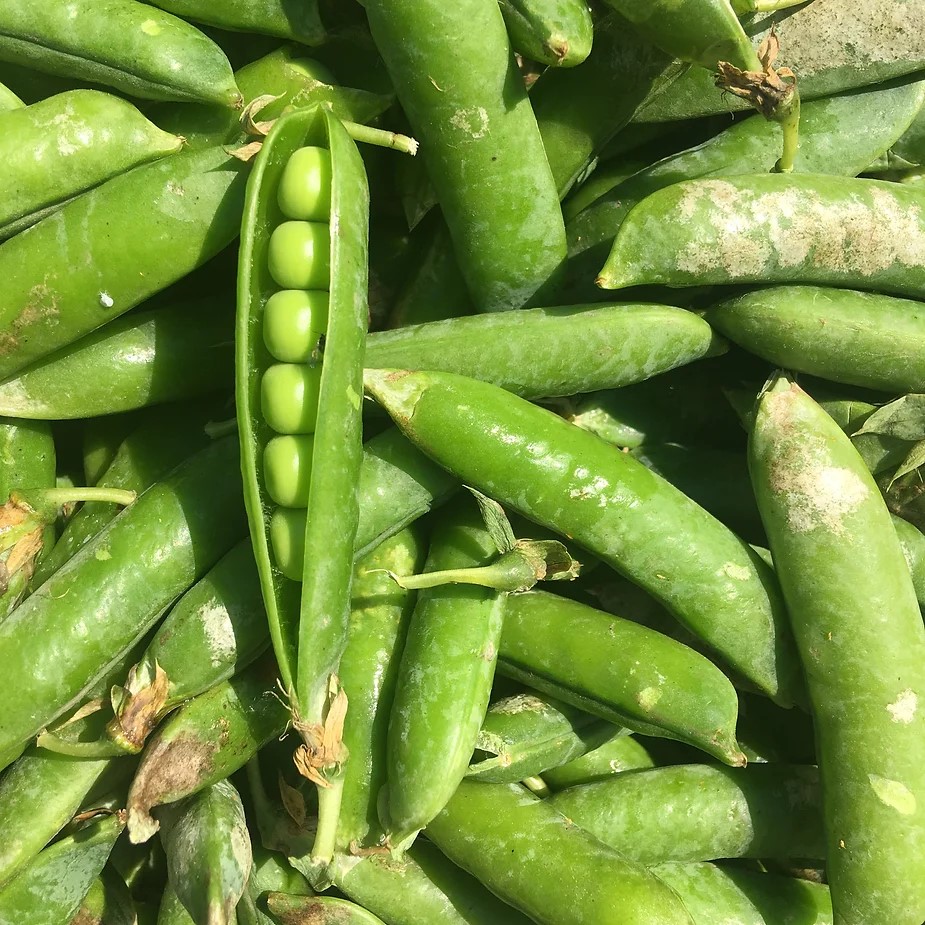For a moment, let's reflect on the contrast between the industrial pea and its fresh garden progenitor. In many ways the industrial pea is far more benign than many of its contempories. At least the pea production represents a leguminous break in an otherwise unrelentingly intensive "rotation" within industrial farming production systems. What passes for crop rotations on most industrial farms are in fact carefully calculated attempts to extract the maximum from an already thrashed soil - mining operations. Here a pea crop looks positively agro-ecological. Demanding little and giving temporary respite to our over-burdened farm lands. However, the benign intermission stops there: Take a quick look at the video and you will see the industrial chain, leading from serious soil compaction from mega machinery, through to an unforgiving energy drain, as the feckless pea is harvested, threshed, graded, washed, frozen and finally wrapped in plastic, to enter its cryonic suspension in the deep freeze prior to consumption.- this is the industrial pea - a victory in energy-intensive fantasy efficiency.
By contrast, quickly consider the homely ancestor, the garden pea - sown early into a cool soil, bringing glee to gardeners as one of the first to sprout out of the kind earth, quick to put on foliage, and gently shade the soil from the spring elements. To be picked fresh and sweet and savoured by children and grandparents fresh from the vine, before being shelled in conversational groups.
So why are our fresh garden peas so expensive, as compared to their industrial progeny? Compare the terrifying efficiency of the combine, which can pick (https://www.itn.rs/files/products/file_sr/pmc-1089-brochure-2018.pdf) tens of tonnes per hour. Look no further than the harvesting: a skilled gardener can hand-pick a few kilograms of peas in an hour, a pea harvester will pick tens of tonnes in the same time. If it costs the farmer around 2500Ft/hour in labour, it will add say 500Ft in cost to picking the pea by hand. By comparision, an industrial harvester picks so quickly that harvesting is a negligible part of the cost of the peas delivered in plastic packs to the customers table - say a couple of Ft/kg. The greatest part of the cost of frozen peas is energy needed to process and freeze the peas, not the harvesting costs. The production costs of fresh garden peas are orders of magnitude higher than the cost of industrially produced peas - until, that is we start internalising the environmental costs - that is calculating the negative impacts of industrial farming, e.g. the large subsidies supporting industrial farming, unrealistically low energy costs - considering their negative effect on the environment, the cost to the health system of chemical inputs in food, the loss of biodiversity, the cost to rural communities of the loss of local jobs, etc.- until we do that, all industrial food appears cheap compared with home grown, or small-scale organic.

Source: own photo at Zsamboki Biokert

